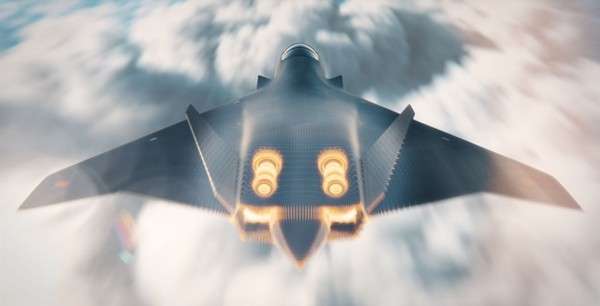Óscar Ruiz

Migration Expert and International Analyst
A career military officer in the Spanish Navy Marine Infantry with over 30 years of experience. Served for nine years in NATO Headquarters in Belgium and Sarajevo, specializing in intelligence and information security. Participated in military missions across Africa, the Americas, and Europe. Lecturer and speaker on topics such as jihadist terrorism, migration challenges, and maritime security.
Everything seemed to be on track: each country responsible for a third of the next-generation fighter jet program. But France, through Dassault, wants more. It is now demanding 80% of the design and production of the sixth-generation FCAS fighter. And this is no rumor—Reuters confirmed it, and Dassault CEO Éric Trappier has doubled down: if things don’t go their way, they are ready to go it alone.
Why this bold move from France? The same old argument: experience. They’ve already developed the Rafale, and that supposedly gives them the upper hand. They call it “the principle of the best,” but in practice, it sounds more like: “we lead, you fund.”
Germany Strikes Back: More American F‑35s
Berlin, no stranger to France’s unilateral moves in defense cooperation, responded quickly. It is now “considering” an additional purchase of 15 F-35s, on top of the 35 already ordered. The message to Paris is clear: if FCAS collapses, Germany has alternatives. And to increase the pressure, some German military and political voices are already referring to FCAS… in the past tense.
But this is about more than just aircraft. Germany’s Defense Ministry is reportedly growing weary of French intransigence. Politicians like Christoph Schmid are warning that FCAS risks becoming “a French-led project financed by others.”
Can FCAS Fail? Absolutely. And Faster Than Expected
The FCAS is more than a fighter jet. It’s an entire ecosystem: a manned aircraft, accompanying drones, a combat cloud, sensors, and more. It requires trust, collaboration, and a shared long-term vision. At the moment, none of those are present.
If France imposes its model, Germany could walk away—potentially dooming the project within months. Phase 2, set to begin shortly, might be halted indefinitely. That could delay the aircraft’s entry into service until 2045—or beyond.
Spain: Silent… But Directly Affected
Spain holds a one-third stake in FCAS and has already invested over €1 billion. It plays a key role in sensor development, electronic warfare, and radar signature management—led by Indra, with crucial participation from Airbus Spain.
But if the project stalls or collapses, Spain currently has no plan B. The Air Force’s Hornets are nearing the end of their operational life. The Eurofighters still have years ahead, but they don’t cover the full spectrum of capabilities. And unlike Germany, Spain has not purchased a single F-35.
If FCAS fails, there’s no domestic alternative—leaving Spain dependent on the U.S. or falling (far) behind technologically. It would also mean losing industrial ground and strategic influence in European defense. The very idea of “European strategic autonomy” would suffer a major blow. Once again, we’d rely on the U.S. for something as fundamental as defending our own airspace.
What Now? Three Possible Scenarios
Several outcomes are on the table:
1. France pushes ahead and launches the project largely on its own, with minimal support from others. FCAS becomes a glorified Rafale upgrade. The project loses its European character.
2. Germany and Spain walk away, each going their own way. Berlin with the F-35s, Madrid trailing behind without clear direction.
3. All parties step back, reset the negotiations, and sign a new agreement. Today, this is the least likely—and the only path that could truly save FCAS.
In the background, a new idea is gaining traction: a merger with GCAP, the British-Japanese-Italian sixth-generation fighter project. Impossible in the short term—but less impossible than before.
What Can Spain Do?
Spain must demand that the original agreements be upheld. It cannot afford to be a second-tier partner. At the same time, it should quietly open a channel with the United States to explore a limited purchase of F-35s—just in case FCAS falls apart. It wouldn’t be the first time.
Above all, Spain must defend its defense industry. Indra, Airbus, and dozens of other firms are already developing critical technologies for FCAS. That know-how must be preserved and protected.
FCAS was born as a symbol of European sovereignty in defense. Today, it stands at a crossroads—trapped between the ambition of some, the skepticism of others, and the passivity of the rest. If this trajectory isn’t corrected soon, there will be no European fighter of the future.
